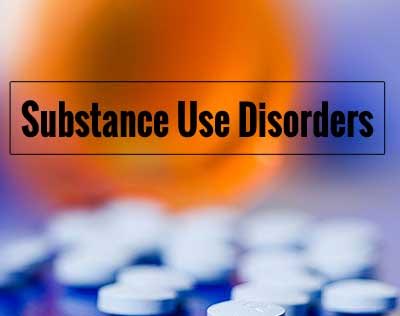- Home
- Editorial
- News
- Practice Guidelines
- Anesthesiology Guidelines
- Cancer Guidelines
- Cardiac Sciences Guidelines
- Critical Care Guidelines
- Dentistry Guidelines
- Dermatology Guidelines
- Diabetes and Endo Guidelines
- Diagnostics Guidelines
- ENT Guidelines
- Featured Practice Guidelines
- Gastroenterology Guidelines
- Geriatrics Guidelines
- Medicine Guidelines
- Nephrology Guidelines
- Neurosciences Guidelines
- Obs and Gynae Guidelines
- Ophthalmology Guidelines
- Orthopaedics Guidelines
- Paediatrics Guidelines
- Psychiatry Guidelines
- Pulmonology Guidelines
- Radiology Guidelines
- Surgery Guidelines
- Urology Guidelines
Internists issue recommendations for preventing and treating substance use disorders

The American College of Physicians (ACP) released a paper with a comprehensive set of public policy recommendations for the prevention and treatment of substance use disorders involving illicit and prescription drugs. The paper is published in Annals of Internal Medicine.
"Drug overdose deaths, particularly from opioids such as prescription pain relievers and heroin, is a rising epidemic," said Nitin S. Damle, MD, MS, MACP, president, ACP. "Substance use disorders are treatable chronic medical conditions, like diabetes and hypertension, that should be addressed through expansion of evidence-based public and individual health initiatives to prevent, treat, and promote recovery."
ACP says that substance use disorders pose a heavy societal burden, endangering individual and family health and well-being, tearing through communities and sapping resources from the health care system. These disorders are common in the general population and at even higher rates among those who are incarcerated.
Access to care for substance use disorders is limited. In 2014, 22.5 million people in the U.S. needed treatment for an illicit drug or alcohol use problems but only 18 percent received any treatment, far below treatment receipt rates for those with hypertension (77 percent), diabetes (73 percent), or major depression (71 percent).
To combat the epidemic of prescription drug misuse, ACP recommends that physicians become familiar with and follow as appropriate clinical guidelines related to pain management and controlled substances such as prescription opioids as well as non-opioid drugs and non-drug interventions; the expansion of access to naloxone to opioid users, law enforcement, and emergency medical personnel; the expansion of access to medication-assisted treatment of opioid use disorders; improved training in the treatment of substance use disorders including buprenorphine-based treatment; and the establishment of a national Prescription Drug Monitoring Program and improvement of existing monitoring programs.
"ACP strongly urges prescribers to check Prescription Drug Monitoring Programs in their own and neighboring states as permitted prior to writing prescriptions for medications containing controlled substances," Dr. Damle said.
Additional recommendations from ACP include emphasizing prevention and treatment of substance use disorders through public and individual health interventions rather than excessive reliance on criminalization and incarceration; requiring health insurance to cover mental health conditions including the evidence-based treatment of substance use disorders and abide parity rules; embedding training in the treatment of substance use disorders throughout the continuum of medical education; expanding the workforce of professionals qualified to treat substance use disorders; and studying the effectiveness of public health interventions to combat substance use disorders and associated health problems.
"Physicians can help guide their patients towards recovery by becoming educated about substance use disorders and proper prescribing practices, consulting prescription drug monitoring systems to reduce opioid misuse, and assisting patients in their treatment," said Dr. Damle.
Although a number of states have legalized or decriminalized use and sale of medical and/or recreational marijuana, its use and possession remains illegal under federal law and in many states. Therefore, ACP included it as an illicit drug.
ACP recognizes that alcohol and tobacco use disorders are serious public health problems. Policies to address such issues are outside the scope of the paper.

Disclaimer: This site is primarily intended for healthcare professionals. Any content/information on this website does not replace the advice of medical and/or health professionals and should not be construed as medical/diagnostic advice/endorsement or prescription. Use of this site is subject to our terms of use, privacy policy, advertisement policy. © 2020 Minerva Medical Treatment Pvt Ltd